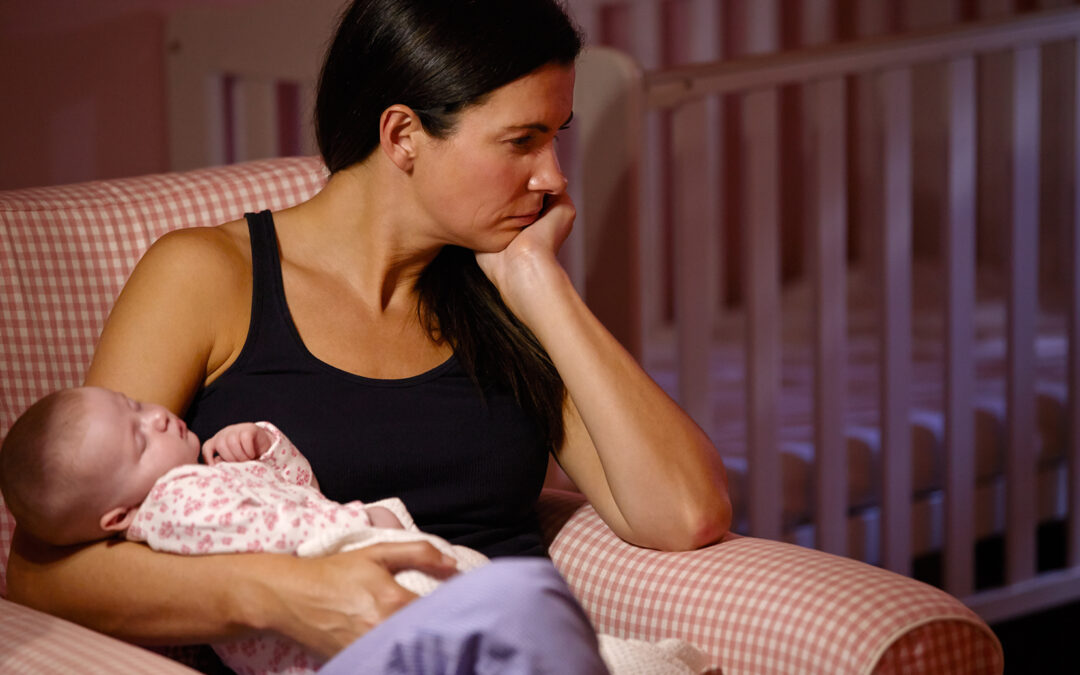
by North Shore Child & Family Guidance Center | Feb 16, 2024 | In The Media, Press Releases
January 24, 2024, Manhasset – To celebrate International Day of Education, MTO Shahmaghsoudi School of Islamic Sufism rallied the community to donate art and early learning supplies for the children of North Shore Child & Family Guidance Center. Dozens of gift bags were donated and distributed to the young clients of the Guidance Center’s Manhasset location, the Marks Family Right from the Start Center 0-3+, providing an outlet for kids to use art and creativity as a way to strengthen their mental well-being.
“The donation represents our collective effort to come together and spread the message of peace, love, and hope,” said MTO volunteer Ellica Sedigh. “MTO Professor Nader Angha, the current Sufi Master, has said that “hope is a planted seed in fertile ground that bears fruit.” Through these gift bags we symbolize the act of planting seeds of hope for children facing mental health challenges.”
Dr. Sue Cohen, the Director of Clinical Services at the Marks Family Right from the Start Center 0-3+, shared that the gift bags were greatly appreciated by the Guidance Center’s clients and their parents. “The goodies in the bags align with the work that we do on finding appropriate activities to use as coping mechanisms and grounding skills,” she said.
Town of Hempstead Supervisor Jennifer DeSena, a longtime supporter of both North Shore Child & Family Guidance Center and MTO Shahmaghsoudi, stated “Mental health is something I have worked to promote and educate about for many years. MTO and the Guidance Center both share a devotion to mental health and finding balance in positive ways through serving and educating the community.”
About Us:
As the preeminent not-for-profit children’s mental health agency on Long Island, North Shore Child & Family Guidance Center is dedicated to restoring and strengthening the emotional well-being of children (from birth – age 24) and their families. Our highly trained staff of psychiatrists, psychologists, social workers, vocational rehabilitation counselors and other mental health professionals lead the way in diagnosis, treatment, prevention, training, parent education, research, and advocacy. The Guidance Center helps children and families address issues such as depression and anxiety; developmental delays; bullying; teen pregnancy; sexual abuse; teen drug and alcohol abuse; and family crises stemming from illness, death, trauma, and divorce. For nearly 70 years, the Guidance Center has been a place of hope and healing, providing innovative and compassionate treatment to all who enter our doors, regardless of their ability to pay. For more information about the Guidance Center, visit www.northshorechildguidance.org or call (516) 626-1971.

by North Shore Child & Family Guidance Center | Feb 1, 2024 | Blank Slate Media, In The Media
Published in Blank Slate Media on January 24th, 2024
The walls of North Shore Child and Family Guidance Center look a lot brighter thanks to the wonderful murals donated by Splashes of Hope. The nonprofit organization, dedicated to transforming environments “from clinical to colorful,” paid a visit to The
Leed’s Place — Serving Young People on December 20th with the intention of bringing warmth and cheer to the space. The Leed’s Place is home to a variety of specialized services benefiting the youth of Nassau County, including programs for pregnant & parenting teens and adolescents struggling with alcohol & substance dependency. Clients are now greeted by an expansive mural depicting “A Sea of Possibilities,” instilling hope in all who walk through the doors.
“Splashes of Hope has transformed our waiting areas into a welcoming, eye-catching, and positive environment for our patients and staff,” says Dr. Nellie Taylor-Walthrust, Director of The Leed’s Place. “It’s exciting to see children and their families closely examining the custom mural, pointing out the various details they find interesting and exciting. The art has brought an exciting new life to The Leeds Place.”
“After meeting the staff at North Shore Child & Family Guidance Center and learning about their mission, we measured and assessed The Leeds Place and couldn’t wait to make a ‘splash’,” said Heather J. Buggee, Founder and CEO of Splashes of Hope. “To serve as a reflection of the positive energy, care and concern this staff exemplifies, Splashes of Hope created uplifting, thoughtful murals and focal points for families who enter North Shore Child & Family Guidance Center. We are grateful to have this important resource for children and families in crisis. Our intention is for the artwork to transform the space into a welcoming and uplifting environment.”
Laurence W. Levine Foundation, a longtime supporter of Splashes of Hope’s work, made the beautification of The Leed’s Place possible. “The Levine Foundation is well aware of the importance of mental health awareness and treatment for children and their families,” said Lesley Logue, a Director of the Levine Foundation. “Splashes of Hope transcends a once-dull space into a peaceful, calming backdrop to elicit a therapeutic response in a place like the Guidance Center. The designs, artistry and colors used can transform not only the walls, but the whole process for everyone who enters! Our hope is to continue supporting Heather and all of Splashes of Hope as they bring comfort to those who are facing difficult times, splashing away some of the darkness by bringing more color to their lives.”
Thank you so much to Laurence W. Levine Foundation and Splashes of Hope for making this special project a reality!
Photo: Lauren McGowan, Dr. Nellie Taylor-Walthrust, Jim Knapp, Kathy Rivera
Click here to read the article.

by North Shore Child & Family Guidance Center | Jan 11, 2024 | Blog
While the holidays are synonymous with joy, togetherness, and celebration, the period that follows can prove to be anything but. As the boxes of decorations are moved back into the attic, it’s not uncommon for complex emotions to take over. The phenomenon known as “post-holiday blues” takes place when the chaos of the holidays has come to an end, leaving behind feelings of emptiness, anxiety, and frustration. This slump can have particular effects on mothers, who often take the lead on holiday planning and are therefore more susceptible to the highs and lows of the holiday season and beyond.
The post-holiday blues share many characteristics of anxiety and mood disorders. Sadness, loneliness, anxiety, insomnia, and disappointment are common traits, and are often confined to the winter months.
Emotional labor, expectations, and repression
Mothers often bear the brunt of emotional labor during the holidays. According to research done by the American Psychological Association, women are more likely than men to report an increase of stress during the holiday season, citing lack of time, lack of money, and pressure to give presents as primary stressors. The pressure to buy the perfect gifts, decorate the home, and prepare elaborate meals can be emotionally taxing, and mothers will frequently spend weeks planning, organizing, and ensuring that everyone in the family has a memorable and magical experience.
Social media has contributed to an unrealistic set of expectations surrounding the holiday season. As we scroll through countless posts of elaborately decorated houses and piles of perfectly wrapped presents, it’s easy to find ourselves comparing our holiday celebrations to those of others. Many mothers feel responsible to create a picture-perfect holiday atmosphere for their families, and often face a sense of letdown if they fail to meet these expectations.
The period of Thanksgiving through New Year’s is a chaotic time, and busy parents frequently spend every spare moment focused preparing for celebrations. With so much time and energy focused on others, it is easy to neglect your own mental wellbeing, pushing any negative emotions aside in order to focus on the long list of things that need to get done. January brings time to catch your breath and reflect, leading to weeks of emotions bubbling to the surface. These repressed feelings will be difficult to handle all at once, and will result feeling overwhelmed and burned out.
Manage the post-holiday blues
The post-holiday blues don’t have to be inevitable. Be sure to set boundaries with family and friends in order to avoid stretching yourself too thin, and reach out for help before you begin to feel overwhelmed. If symptoms have already set in, take time to yourself and focus on self-care. Prioritizing things that make you happy are key in escaping the feelings of loneliness and isolation that are all too frequently associated with the winter months. Focus on eating well, exercising, and staying mentally stimulated. Most importantly, be gentle with yourself and remember that, even if the holidays didn’t go as planned, you are still a great mother.
If you are a new mom and worried about how you are feeling, don’t be afraid to reach out for help. Contact the North Shore Child and Family Guidance Center at (516) 626-1971 to get the necessary support you need.

by North Shore Child & Family Guidance Center | Dec 28, 2023 | Ask The Guidance Center Experts, Blog
In this monthly column, therapists from North Shore Child & Family Guidance Center answer your questions on issues related to parenting, mental health and children’s well-being. To submit a question, email communications@northshorechildguidance.org.
Question: With the New Year approaching, my daughter comes home from school every day with a different resolution she declares she wants to stick to. I love that she has goals she wants to accomplish, but I want to make sure she isn’t overwhelming herself with too many expectations. How can I help her manage her long list of New Year’s Resolutions, and support her in sticking to the ones she finds important?
-Realizing Realistic Resolutions
Dear Realizing Realistic Resolutions,
As we approach the New Year, many of us are familiar with the enthusiasm our children bring home, declaring a myriad of resolutions they want to accomplish when the clock strikes midnight. It isn’t uncommon for children to overload themselves with things they would like to achieve, widely ranging from eating healthy to becoming the President. Kids need to feel a sense of mastery, and having an abundance of resolutions may make that difficult.
Support is integral in helping kids stay committed to their resolutions. It’s important to begin the conversation by expressing how proud you are of her desire to make choices that will positively impact her and foster an environment of open communication on her journey. Sit down with your child and go over the list together, picking out one or two objectives that are particularly meaningful and realistically achievable. Work together to create a reasonable timeline and break down the goals into smaller, actionable steps. Be sure to celebrate the progress along the way, making the experience enjoyable and enriching for your family. Does she want to be at the top of her class this year? Explain how often she’ll have to study to make that happen and celebrate every A on a test she brings home.
Watch out for signs that your child is overwhelmed, stressed, or frustrated. If she is falling short of her goals and expresses feelings of inadequacy, it’s essential to reassess the situation. This should be an enjoyable experience, so remind your daughter that setbacks are a natural part of growth, and that she can always adjust her resolutions to become more manageable. Always prioritize progress over perfection!
Lastly, encourage making positive changes all year long, not just on New Year’s Day. There is never a bad time to start a goal, and pushing it off until January 1st can make the task more daunting. This goes for adults, too! How often do you wait until the new year to get back into the gym instead of signing up for the membership then and there? New Year’s resolutions can be a great source of motivation, but remember that it’s up to you to make a change in your life, not a date on the calendar.
As the preeminent not-for-profit children’s mental health agency on Long Island, North Shore Child & Family Guidance Center is dedicated to restoring and strengthening the emotional well-being of children (from birth – age 24) and their families. For 70 years, the Guidance Center has been a place of hope and healing, providing innovative and compassionate treatment to all who enter our doors, regardless of their ability to pay. For more information about the Guidance Center, visit www.northshorechildguidance.org or call (516) 626-1971.

by North Shore Child & Family Guidance Center | Dec 26, 2023 | Blog
It’s the most wonderful time of the year, meant to give us the opportunity to reflect on family, tradition, resolutions and… budgets. The holiday season is characterized primarily by wish lists and last-minute shopping, straying further away from the interconnectedness we all aim for during the winter holidays. When every advertisement is aimed towards getting our children the hottest new toy, kids are led to wonder less about what family members they’ll be seeing and focus more on which presents they’ll be receiving. How do we break out of this cycle? By teaching our kids the gift of gratitude.
Give to the community
Encouraging children to give back to the less fortunate members of their community can allow them to appreciate their privileges more. Suggest that, instead of asking for a toy or game, they put the money towards helping other children. Volunteering at a soup kitchen during the holidays is a great way to bond with your family while connecting to the community. Sit down with your children and figure out what causes they find meaningful, whether it be mental health, fighting hunger, supporting animal shelters, or anything in between. A collaborative conversation with the whole family will show your children the value of a dollar and allow them to realize that the best present isn’t receiving, but giving.
Watch out for overconsumption
Thanks to the advent of two-day shipping and online-only deals, shopping couldn’t be more convenient. This often leads to making purchases on things we have no real need for, simply because it’s accessible. When children see packages arriving on the doorstep multiple times a week, they learn to view spending money on material items as inconsequential and commonplace, even learning to expect new items on a regular basis.
It can be tempting to spoil your children, especially during the holidays. While there’s nothing wrong with showing love through treats and toys, try to avoid getting everything on their wish lists. Instead, begin to teach your child financial literacy and help them determine the difference between gifts that are wants and needs.
In order to keep overconsumption in the household in check during the holidays, it’s important to show kids how to decide if you really need something before purchasing it. Adopt the one in, one out method: if your child asks for a new toy or video game, explain that in order to make room for a new item, another item will get donated to charity. If they aren’t willing to part with any of their old toys or clothes, they probably don’t need something new.
Write thank you letters
Writing thank you letters during the holidays is a great way to practice gratitude. Whether addressing them to family, friends, teachers, or bus drivers, a handwritten letter is a touching way to show your love and appreciation for a person. In a fast-paced world, writing letters is a personal way to teach children to slow down and reflect on all the support and generosity they are given in their day-to-day lives.
Teaching your child the gift of gratitude is an invaluable lesson that will strengthen their relationships with family, community, and themselves for the rest of their lives. As they grow to place less of a value on receiving presents and more on spreading joy and generosity, children and families will be able to appreciate the holiday season in a rewarding and fulfilling way.





